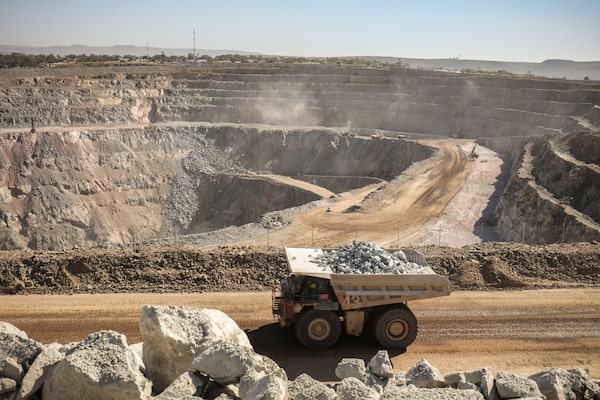
Barrick Gold spun off Acacia into a separate company in 2010, but owns 63.9 per cent of it.Supplied
Fidelity International, one of the largest shareholders in Acacia Mining, said on Friday Barrick Gold’s low bid to buy the Acacia shares it does not already own showed a lack of judgment and it was a “no-brainer” to reject it.
The comments in an interview are the first public response from one of Acacia’s top shareholders since Barrick’s offer earlier this month to buy them out for US$787-million.
Barrick Gold spun off Acacia into a separate company in 2010, but owns 63.9 per cent of it. Barrick has said the offer level reflects the risk of operating in Tanzania and it has until June 18 to turn the indicative bid into a firm offer.
Barrick had no further comment on Friday.
Fidelity International said the bid was about 50 per cent too low.
“We are definitely not going to accept the offer,” Alexander Wright, portfolio manager at Fidelity International, Acacia’s sixth largest investor according to Refinitiv data, told Reuters. “At this price, it’s a complete no-brainer not to accept it.”
Fidelity International, with headquarters in Bermuda and offices in London, owns 3.2 per cent of Acacia. It would require 4 per cent of Acacia’s shareholders to block a compulsory sale and 18 per cent to stop a delisting in the case of formal offer, analysts said.
Barrick’s Acacia offer follows two years of wrangling over a US$190-billion Tanzanian tax bill. A proposed settlement Barrick announced in February included a US$300-million payment to resolve the tax claims.
Fidelity International is also a small shareholder in Barrick Gold and Mr. Wright said he was also indignant in that capacity.
“I think it reflects extremely badly on Barrick,” Mr. Wright said of the takeover bid. “The ability to operate fairly and economically in Africa is important for the company. This shows a real lack of judgment.”
Mr. Wright said his most recent move into Acacia dated from 2017 when he made the assumption an amicable resolution to the company’s dispute with the Tanzanian government would be found.
In the absence of a finalized deal with Tanzania, Acacia is expecting to go ahead with an international arbitration hearing in July, with an outcome expected by the end of this year.
Acacia’s shares reached a peak above £6 ($10.26) in 2016 and have plunged to less than £2 ($3.02), although they rallied in February on the announcement of the proposed settlement and better than expected output.